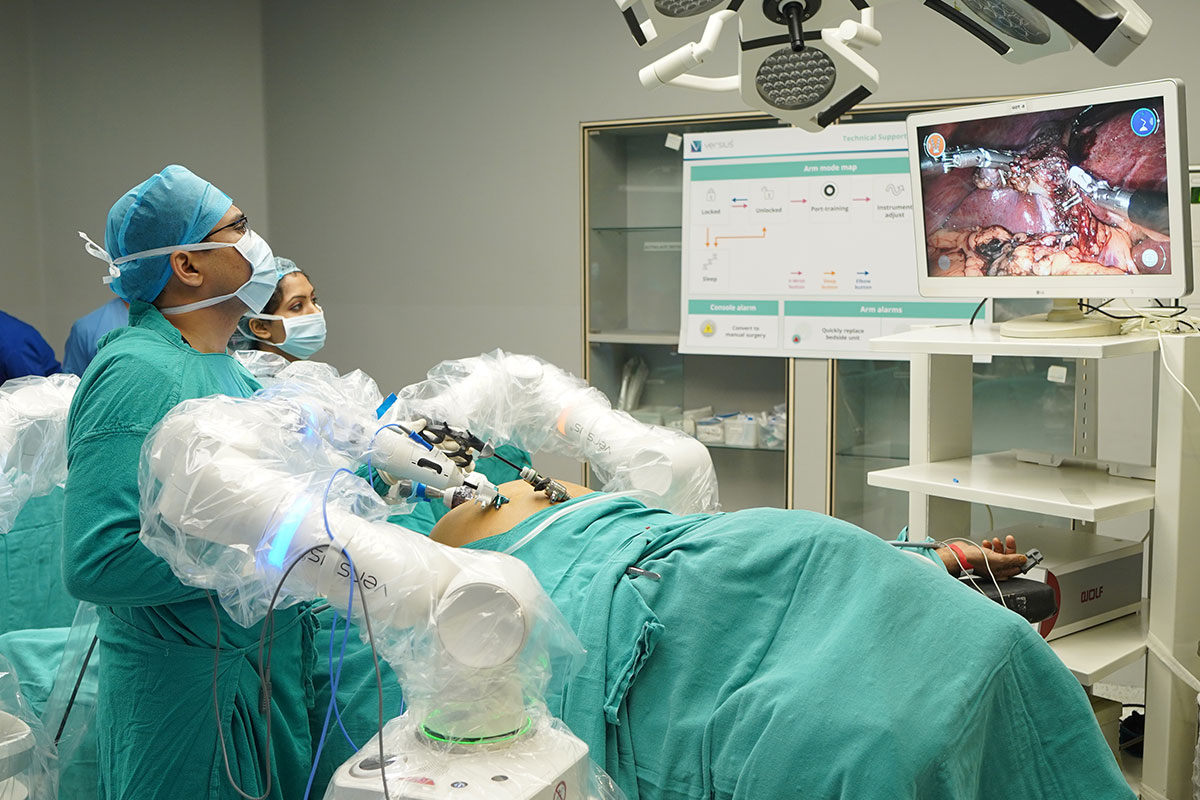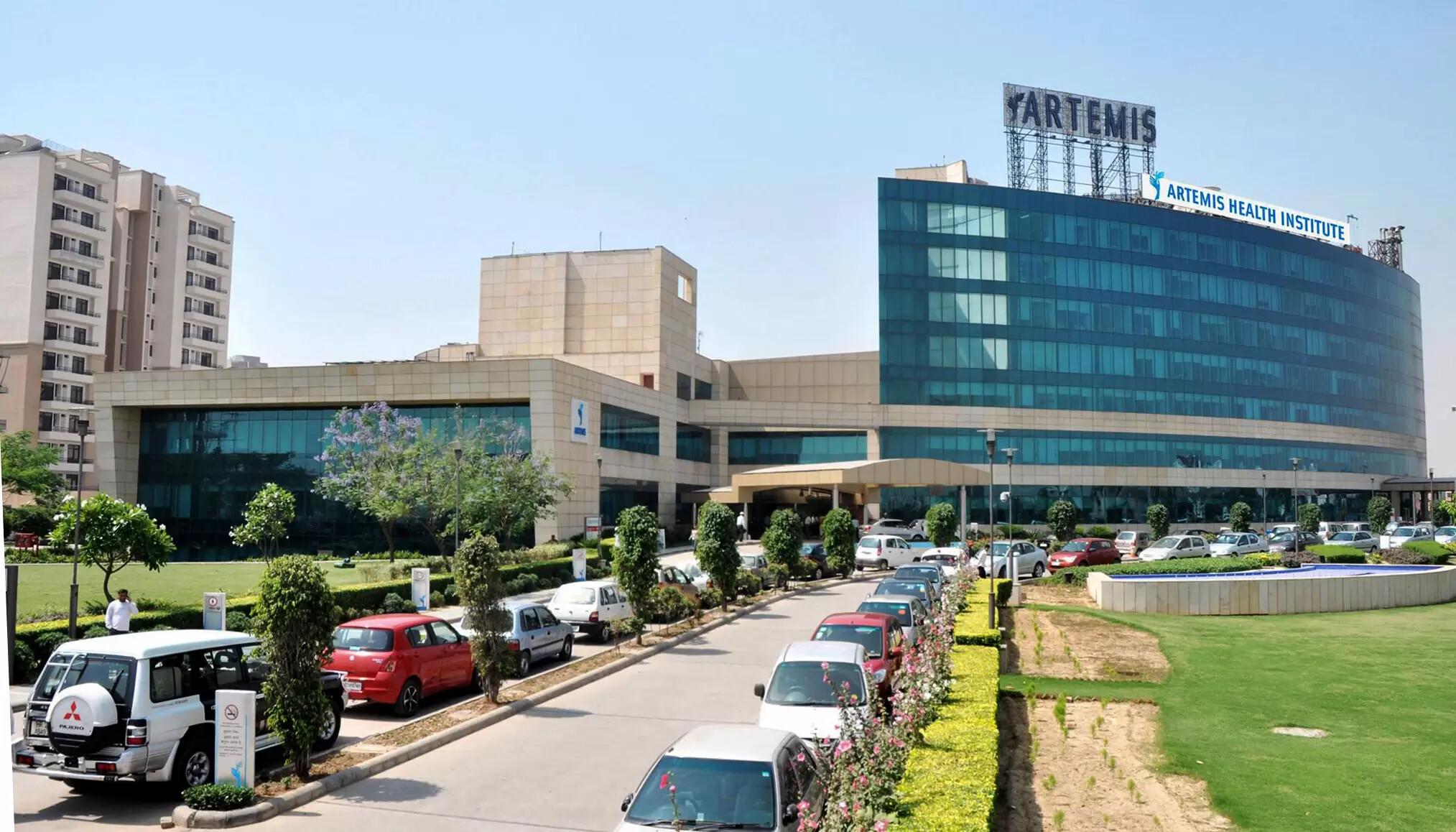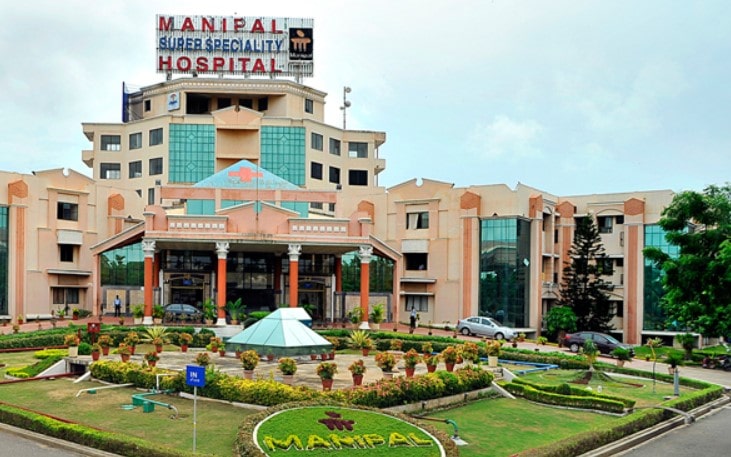Calls for Ukraine
Calls for Europe
Calls for USA

Kidney transplantation is widely recognized as the best treatment option for patients with end-stage renal disease. Kidney transplant operation involves replacing the damaged kidney with a healthy organ taken from a living or deceased donor. MedTour has extensive experience in medical tourism and collaborates with the world’s leading clinics specializing in organ transplantation. In this article, we will explore how kidney transplant surgery is performed in India and the cost of kidney transplant procedure in Indian hospitals.
The first successful kidney transplant surgery in India was performed on February 2, 1971, at the Christian Medical College, Vellore, by a team led by surgeon M. Rao and nephrologist K. V. Johny. This happened 17 years after the first kidney transplant procedure between identical twins in Boston, USA. The successful operation marked the beginning of a new era in the treatment of kidney diseases in India.
There are currently more than 600 kidney transplant centers operating in the country. 75 of them operate in public hospitals, while the rest belong to private clinics. In 2023, India recorded 13,642 kidney transplants (11,791 from living donors and 1,851 from deceased donors) were performed in India.
There are several reasons why patients choose India for kidney transplantation, including:
All these advantages make India a top destination for high-quality, fast, and cost-effective kidney transplant procedure.

There are several medical conditions that indicate the need for a kidney transplant surgery. Clinical guidelines may vary slightly between countries, however the list of main indications includes:
A patient must meet specific criteria to be considered for a kidney transplant in India:
A kidney donor can be either a living or deceased donor. However, most kidney transplant surgeries in India are performed using organs from living donors. Only a patient’s relative, such a spouse, parent, child, brother, or sister, are legally allowed to donate a kidney. Related donors must obtain a hospital committee’s approval confirming their relationship with the recipient and their consent to donation. If the donor is not a close relative, the patient must obtain special legal permission from the committee for kidney transplant procedure.

India ranks second in the world for the number of kidney transplants performed, making the procedure highly refined and standardized in local clinics. Treatment includes the following steps:
Previously, kidney transplant surgeries in India were performed using open surgery. However, by 2000, many medical centers had switched to laparoscopic donor nephrectomy. It is a minimally invasive procedure for kidney donors, which has now become the standard practice in most Indian transplant centres.
The cost of a kidney transplantation includes:
In addition to direct costs, patients should also consider indirect expenses such as travel, accommodation, and transportation.
The cost of a kidney transplant in India is significantly lower than in Western countries. On average, the kidney transplant procedure will cost between $16,000 and $20,000.
Kidney transplant cost in other countries:
Thus, the cost of kidney transplant in India is much more affordable. At the same time, the quality of medicine in the country is at a fairly high level.
The MedTour team has selected for you the best Indian hospitals specializing in kidney transplantation.

Max Healthcare is a leading medical center in India with over 20 years of experience in the field of kidney transplantation. This network of clinics is among the best medical centers in the country for organ transplants in both adults and children, specializing in the treatment of the most complex cases of kidney failure.
Max Healthcare employs 30 highly qualified specialists, including world-class nephrologists, urologists, and transplant surgeons. Each year they provide care for over 15,000 patients with kidney disease.
The clinic offers comprehensive transplantation programs:
The success rates of kidney transplant surgeries at Max Healthcare in India are on par with leading global standards. Many patients who underwent surgery 15-20 years ago still have fully functional kidneys, which indicates the high effectiveness of the treatment carried out here.

Apollo Indraprastha Hospital provides a comprehensive, multidisciplinary approach to kidney transplantation. The coordinated work of a team of nephrologists, urologists, and transplant surgeons ensures optimal outcomes, even in the most complex clinical cases.
The hospital actively uses laparoscopic donor nephrectomy, a minimally invasive technique that significantly reduces post-operative recovery time and minimizes donor discomfort. The clinic’s doctors pay special attention to expanding transplantation options for patients with rare blood types.
Apollo Clinic is a recognized leader in ABO-incompatible kidney transplantation. This technique allows patients to receive transplants even when their blood type does not match the donor’s. This technique significantly reduces waiting time for patients without a compatible donor.

Fortis Hospitals has earned a reputation for exceptional results in kidney transplantation. The clinic has performed over 2,500 successful kidney transplant operations with an efficiency rate of 95%, which exceeds many international standards.
The transplant program is headed by Dr. Sunil Kumar, who has over 15 years of experience and has performed over 1,500 successful transplants. Fortis Clinic specialists in India perform transplants both living and deceased donor transplants, including cases with ABO incompatibility.
The clinic’s priority is to ensure patient comfort and reduce the rehabilitation period. For this purpose, minimally invasive surgical techniques are actively used. Particular attention is paid to post-operative monitoring and long-term follow-up to ensure stable graft function.

Artemis Hospital is a modern medical center with an advanced kidney transplant department. The clinic is equipped with the latest medical technology and follows innovative treatment protocols that meet international standards.
The Artemis transplant program includes pre-operative evaluation using advanced diagnostic techniques, high-precision surgical intervention, and comprehensive post-operative rehabilitation. The hospital specializes in transplants from living donors and is actively developing a program for transplants from deceased donors.
A special feature of Artemis is its personalized approach to each patient and a multi-level quality control system at all stages of treatment. The hospital maintains active international collaborations, integrating the latest global transplant techniques to ensure world-class patient care.

Manipal Hospitals is the leader in kidney transplantation in South India. Among the significant achievements of the medical center are:
Manipal Hospital in Bangalore has been providing kidney transplant surgery since 1991. The center’s structure includes a specialized immunology laboratory for HLA typing and Cross Matching – critically important studies for successful transplantation. Under the guidance of highly qualified nephrologists and transplant surgeons, the hospital provides medical care in accordance with advanced treatment protocols and international quality standards.

Before the kidney transplant operation, both the recipient and donor undergo a comprehensive examination. It is necessary to confirm their compatibility and exclude possible complications. The main diagnostic steps include:
These tests help ensure that the donor and recipient are medically fit for the transplant and that the transplanted kidney will function properly after surgery.
After a successful kidney transplant in India, patients are required to stay in the country for 6-8 weeks for comprehensive post-operative monitoring under the supervision of a nephrologist. This period is critical to ensure the successful functioning of the transplanted kidney and to reach a stable condition before returning to their home country.
Long-term functionality and preservation of a transplanted kidney directly depend on strict adherence to medical recommendations and recovery protocols. The post-operative care plan includes:
Regular laboratory diagnostics are a mandatory part of the post-transplant period. These include blood and urine tests, and other assessments to evaluate kidney function. Early detection of any abnormalities allows for timely adjustment in the treatment plan.
After returning home, patients have remote access to consultations with Indian nephrologists regarding any concerns related to the transplanted kidney. Strict compliance with medical recommendations is a key factor in ensuring the long-term functionality of the transplanted kidney for many years.
Is it possible to get a kidney transplantation in India without a living donor?
Yes, kidney transplant surgery is possible even in the absence of a living donor. In such cases, patients can receive a kidney from a deceased donor through the government’s organ allocation system or private hospitals participating in transplant programs. However, this process may take time due to high demand and compatibility requirements.
How long does a transplanted kidney last?
A transplanted kidney can function for a long time with proper post-operative care. Max Healthcare has patients with functioning transplants from surgeries that were performed 15-20 years ago.
Is repeat kidney transplant possible in India?
Yes, repeat kidney transplantation is possible. Many Indian hospitals, including Max Healthcare, Fortis, and Apollo, specialize in repeat transplants for patients who need to replace a previous transplant.
Patients who have undergone kidney transplantation in India speak positively about the high level of professionalism and care provided by the doctors. Physicians continue to support their patients even after returning home through video consultations. Indian clinic websites feature numerous grateful reviews from people who, thanks to Indian doctors, have been given a chance at a healthy life.
We published a review from a 45 year old patient from Liberia, who suffered from end stage kidney disease. Galima Bismill shared that due to high blood pressure, he felt extremely unwell, and his doctor recommended dialysis. However, over time, the treatment stopped helping. Doctors advised the patient to contact Max Healthcare clinic. By the time he arrived in India, his condition was critical – he had swelling, high blood pressure, and a lung infection. After treating the associated conditions, Indian doctors performed a kidney transplant. The patient’s sister became the donor. Despite the fact that it was a rather complicated operation, the man is now doing well. He recovers quickly and sincerely thanks the clinic’s doctors for saving his life.
If you or a close one is in need of a kidney transplant, call or write to us. A qualified MedTour coordinating physician will provide a free consultation on all questions that arise, help you select a suitable clinic and physician, and also assist in arranging your treatment.
Please rate the work of MedTour
